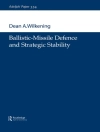Johan Galtung, one of the founders of modern peace studies, provides a wide-ranging panorama of the ideas, theories and assumptions on which the study of peace is based.
The book is organized in four parts, each examining the one of the four major theoretical approaches to peace. The first part covers peace theory, exploring the epistemological assumptions of peace. In Part Two conflict theory is examined with an exploration of nonviolent and creative handling of conflict. Developmental theory is discussed in Part Three, exploring structural violence, particularly in the economic field, together with a consideration of the ways of overcoming that violence. The fourth part is devoted to civilization theory. This involves an exploration of cultural violence focusing on the deeper aspects of cultures. Finally, the threads of these four approaches are drawn together with a focus on peace action – peace by peaceful means.
Table des matières
Introduction: Visions of Peace for the 21st Century
PART ONE: PEACE THEORY
Peace Studies
An Epistemological Basis
Peace Studies
Some Basic Paradigms
Woman:Man = Peace:Violence?
Democracy:Dictatorship = Peace:War?
The State System
Dissociative, Associative, Confederal, Federal, Unitary – or a Lost Case?
PART TWO: CONFLICT THEORY
Conflict Formations
Conflict Life Cycles
Conflict Transformations
Conflict Interventions
Nonviolent Conflict Transformation
PART THREE: DEVELOPMENT THEORY
Fifteen Theses on Development Theory and Practice
Six Economic Schools
The Externalities
Ten Theses on Eclectic Development Theory
Development Theory
An Approach across Spaces
PART FOUR: CIVILIZATION THEORY
Cultural Violence
Six Cosmologies
An Impressionistic Presentation
Implications
Peace, War, Conflict, Development
Specifications
Hitlerism, Stalinism, Reaganism
Explorations
Any Therapies for Pathological Cosmologies?
Conclusion
Peace and Conflict, Development and Civilization
A propos de l’auteur
Johan Galtung, dr hc mult, is Professor of Peace Studies at the University of Haiwaii, the University of Witten/Herdecke, the European Peace University and the University of Troms[o with a line through it]o. One of the founders of peace research, he established the International Peace Research Institute, Oslo (PRIO) in 1959 and the Journal of Peace Research in 1964. He has published over 50 books, including, Essays in Peace Research, Theories and Methods of Social Science Research, Human Rights in Another Key (1994) and Choose Peace (1995).












